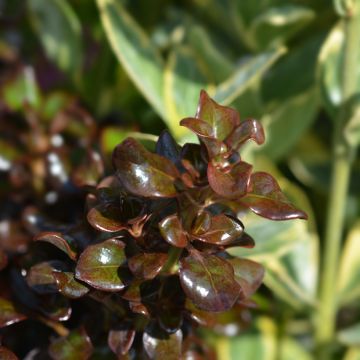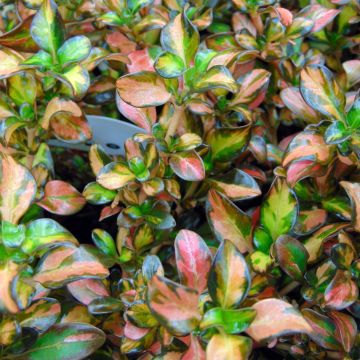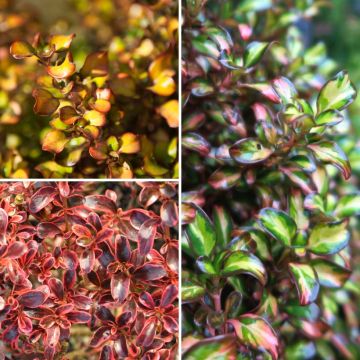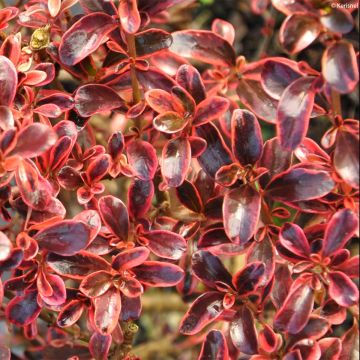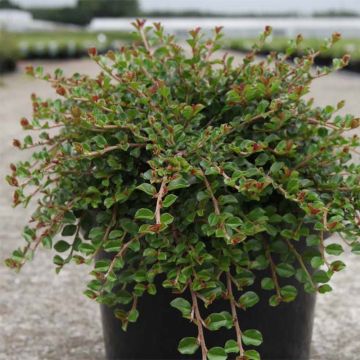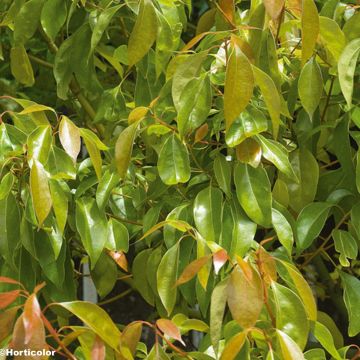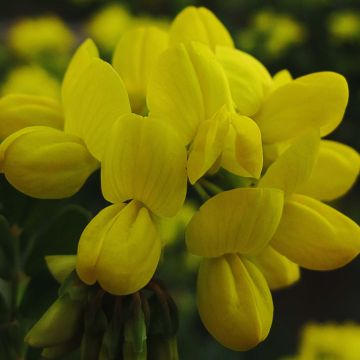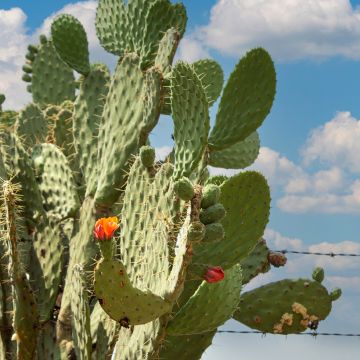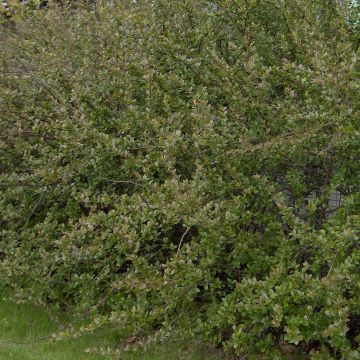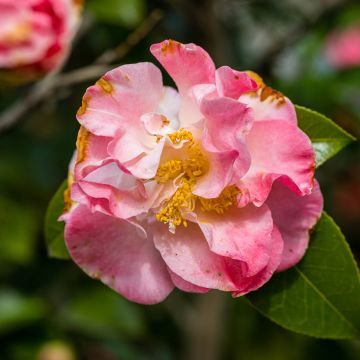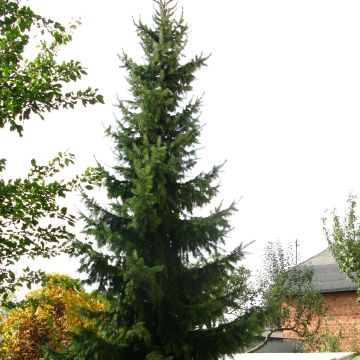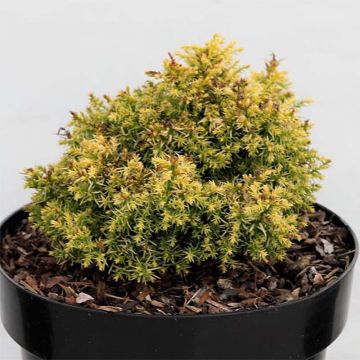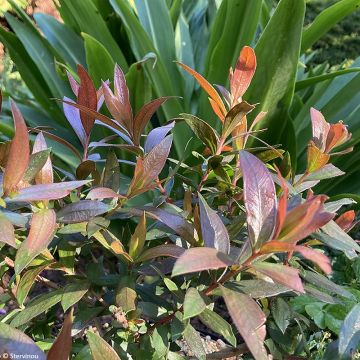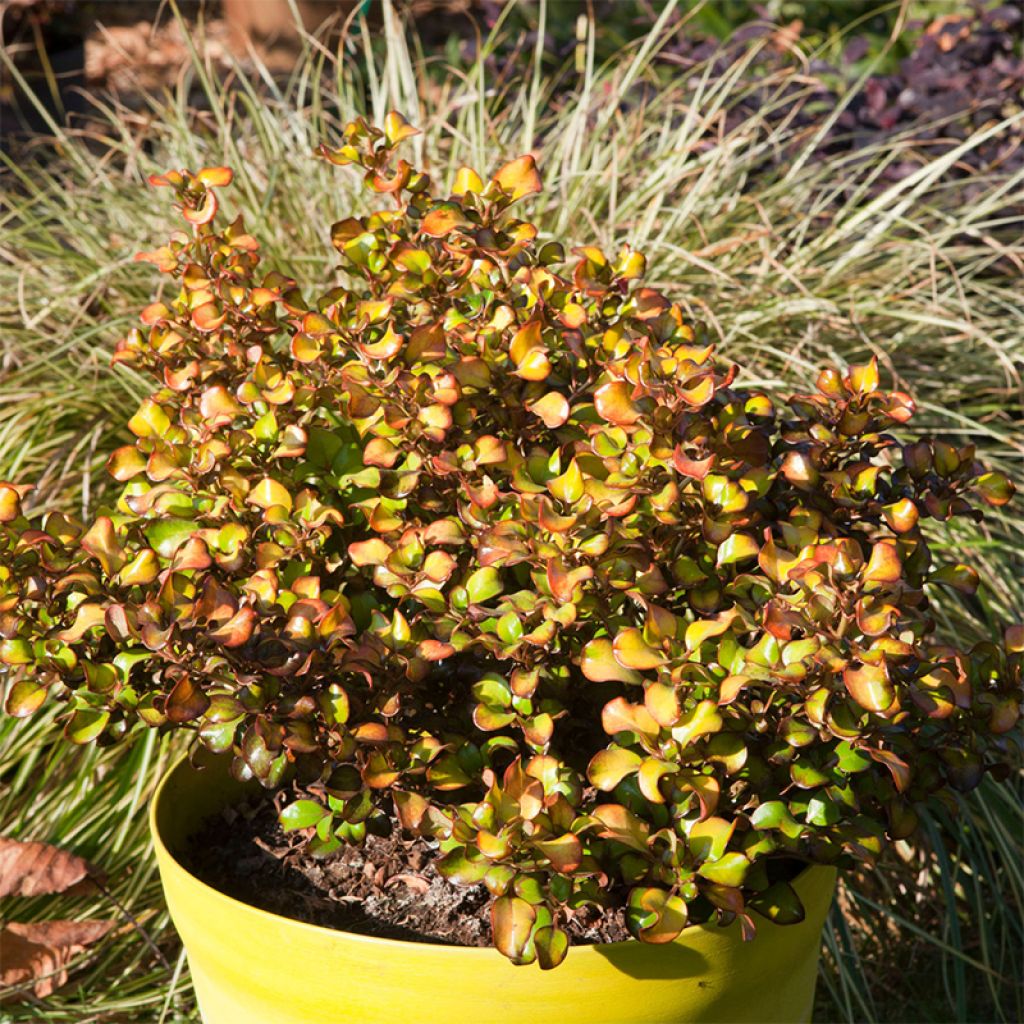

Coprosma Pina colada® - Plante miroir
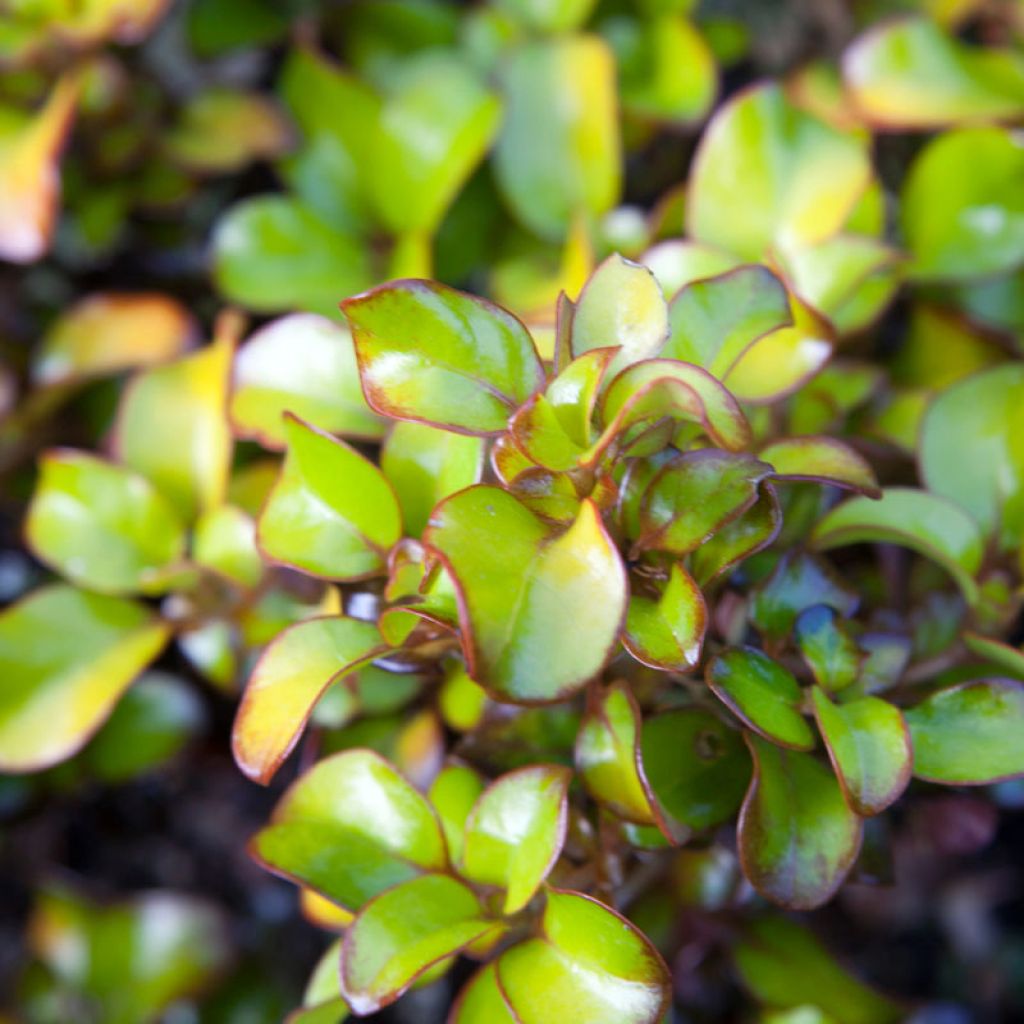

Coprosma Pina colada® - Plante miroir
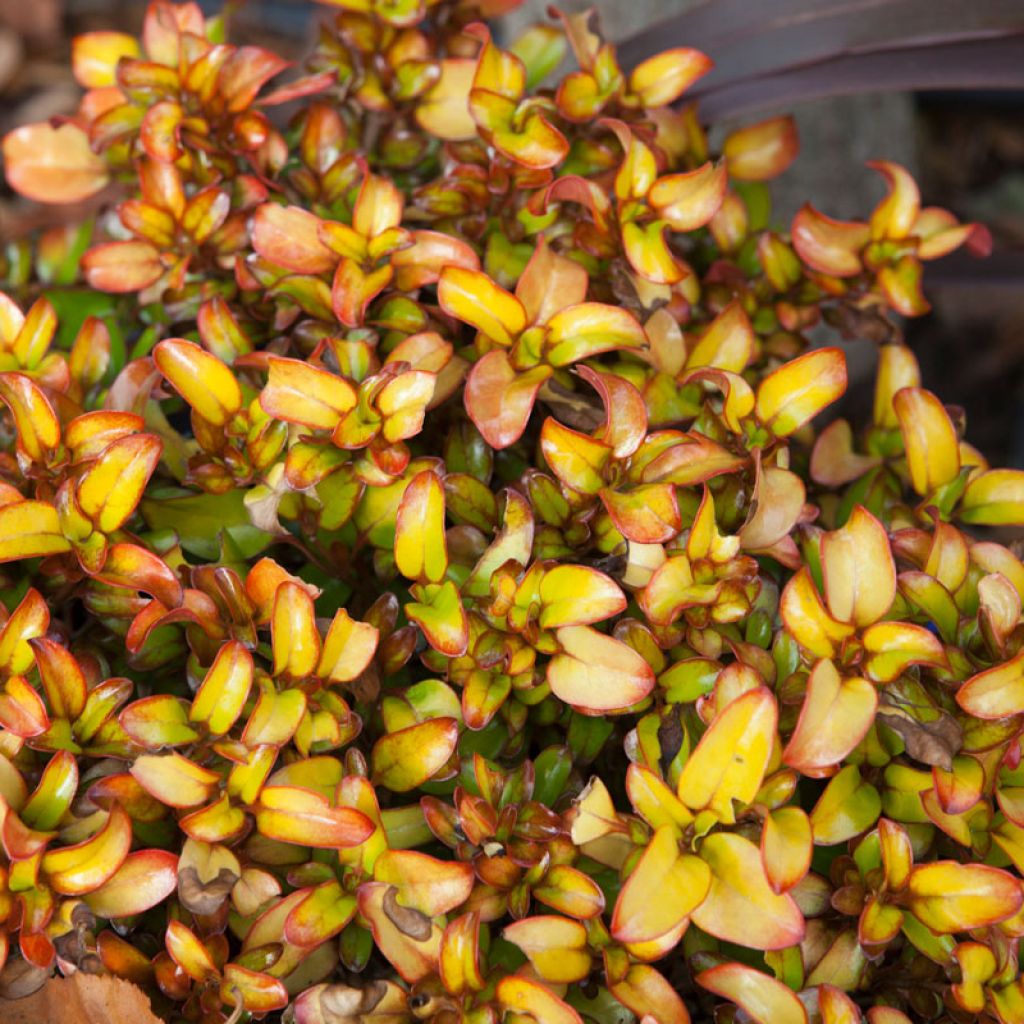

Coprosma Pina colada® - Plante miroir
Coprosma robusta Pina colada
Coprosma x robusta Pina colada
Mirror plant, Looking-glass plant
This item cannot be shipped to the selected country
Delivery charge from €5.90
Delivery to Corse prohibited
More information
Delivery charge from €5.90
Delivery to Corse prohibited
More information
Schedule delivery date,
and select date in basket
This plant carries a 24 months recovery warranty
More information
We guarantee the quality of our plants for a full growing cycle, and will replace at our expense any plant that fails to recover under normal climatic and planting conditions.
From €5.90 for pickup delivery and €6.90 for home delivery
Express home delivery from €8.90.
Delivery to Corse prohibited: UE law prohibits the import of this plant from mainland France to Corse as part of the fight against Xylella fastidiosa. Please accept our sincere apologies.
More information
Does this plant fit my garden?
Set up your Plantfit profile →
Description
Coprosma robusta 'Pina Colada' is a true flame for the garden or terrace. It is a small evergreen bush with changing and zesty colours, predominantly yellow, variegated with orange and green, a tangy cocktail magnified by the very shiny texture of its small leaves. Originally from New Zealand, it is not very hardy, but drought-resistant and very tolerant to sea spray. In the ground, it is an ideal plant for coastal gardens. Elsewhere, this rounded bush with very dense vegetation will adorn the terrace or balcony throughout the summer and will spend the winter protected from frost.
Coprosma robusta 'Pina Colada' is a hybrid horticultural variety resulting from a crossbreeding with the Coprosma robusta. The genus Coprosma consists of 90 species of evergreen shrubs and small trees, most of which are native to New Zealand. These plants belong to the family Rubiaceae, which also includes, for example, sweet woodruff, coffee, and gardenia. Recently arrived on the European horticultural market, these shrubs, nicknamed mirror plants, develop extremely glossy foliage where light and colours play wonderfully. From their origins, these tender shrubs have retained a preference for dry and warm climates and poor, well-drained soils. Hybrids and cultivars like 'Pina Colada' are not very hardy and the plants begin to suffer from -3°C. Their cultivation in the ground will therefore be reserved for coastal areas spared from severe frosts.
'Pina Colada' has a rounded and compact habit, reaching approximately 1.20 m (3 ft 11 in) in all directions at maturity. Its growth is rapid. It develops evergreen foliage composed of small, opposite, lanceolate, leathery, and shiny leaves. Their colour is yellow at the base and turns orange and green at the margin depending on the season. The overall effect is a kind of sparkling, shining, and multicoloured bush. The discreet flowering takes place in late summer in tufts of greenish stamens or stigmas, carried by male or female flowers on separate bushes. The tolerance to frost of this variety is evaluated at -6°C (21.2 °F) at its lowest, in very well-drained soil.
Coprosma 'Pina Colada' is a precious-looking bush, very ornamental when placed in a pot on the terrace or balcony. It can be associated, in a low hedge, with other plants with green foliage (Lonicera nitida), golden (golden marjoram), purple like those of Berberis, or grey, like wormwood. The small blue flowers of Salvia chamaedryoides or Felicia will pose blue flashes on the ice of its foliage. This cultivation method is suitable for most regions where frost is heavy in winter. This bush requires some precautions to be able to acclimatize in the ground in gardens: it prefers light, poor, and non-chalky soils.
Plant habit
Flowering
Foliage
Botanical data
Coprosma
x robusta
Pina colada
Rubiaceae
Mirror plant, Looking-glass plant
Oceania
Other Coprosma
Planting and care
Coprosma robusta 'Pina Colada' thrives in open ground in coastal regions spared from frost. It is best planted in spring, in full sun or partial shade, with autumn colours being more intense in the sun. It is a plant that withstands drought and tolerates poor soils but dislikes the presence of limestone. Plant it in light and well-drained soil, for example, a mix of leaf mold, ericaceous soil, and river sand. Avoid repeated watering with hard water. The planting hole should be twice the size of the root ball. Water regularly to aid establishment, but once well-established, the Coprosma can do without watering in summer in most regions.
Pruning is not essential, if necessary prune sparingly between April and August. Water plants grown in containers regularly. In cold regions, bring them indoors to a cool, bright room with little or no heating before the arrival of severe frost.
Modern hybrids seem to be less susceptible to scale insects and sooty mould. However, plants cultivated in greenhouses will be more exposed to these pests and diseases.
Planting period
Intended location
Care
This item has not been reviewed yet - be the first to leave a review about it.
Evergreen shrubs
Haven't found what you were looking for?
Hardiness is the lowest winter temperature a plant can endure without suffering serious damage or even dying. However, hardiness is affected by location (a sheltered area, such as a patio), protection (winter cover) and soil type (hardiness is improved by well-drained soil).

Photo Sharing Terms & Conditions
In order to encourage gardeners to interact and share their experiences, Promesse de fleurs offers various media enabling content to be uploaded onto its Site - in particular via the ‘Photo sharing’ module.
The User agrees to refrain from:
- Posting any content that is illegal, prejudicial, insulting, racist, inciteful to hatred, revisionist, contrary to public decency, that infringes on privacy or on the privacy rights of third parties, in particular the publicity rights of persons and goods, intellectual property rights, or the right to privacy.
- Submitting content on behalf of a third party;
- Impersonate the identity of a third party and/or publish any personal information about a third party;
In general, the User undertakes to refrain from any unethical behaviour.
All Content (in particular text, comments, files, images, photos, videos, creative works, etc.), which may be subject to property or intellectual property rights, image or other private rights, shall remain the property of the User, subject to the limited rights granted by the terms of the licence granted by Promesse de fleurs as stated below. Users are at liberty to publish or not to publish such Content on the Site, notably via the ‘Photo Sharing’ facility, and accept that this Content shall be made public and freely accessible, notably on the Internet.
Users further acknowledge, undertake to have ,and guarantee that they hold all necessary rights and permissions to publish such material on the Site, in particular with regard to the legislation in force pertaining to any privacy, property, intellectual property, image, or contractual rights, or rights of any other nature. By publishing such Content on the Site, Users acknowledge accepting full liability as publishers of the Content within the meaning of the law, and grant Promesse de fleurs, free of charge, an inclusive, worldwide licence for the said Content for the entire duration of its publication, including all reproduction, representation, up/downloading, displaying, performing, transmission, and storage rights.
Users also grant permission for their name to be linked to the Content and accept that this link may not always be made available.
By engaging in posting material, Users consent to their Content becoming automatically accessible on the Internet, in particular on other sites and/or blogs and/or web pages of the Promesse de fleurs site, including in particular social pages and the Promesse de fleurs catalogue.
Users may secure the removal of entrusted content free of charge by issuing a simple request via our contact form.

































